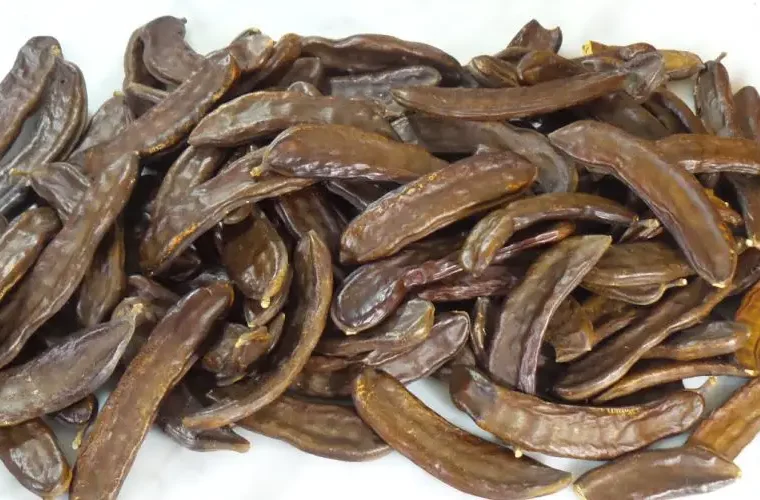In today’s fast-paced world, we often overlook ancient, nutrient-rich foods in favor of more modern, processed alternatives. One such treasure, often forgotten but incredibly valuable, is the carob. This ancient fruit, derived from the carob tree (Ceratonia siliqua), has been cherished for centuries for its unique flavor, versatility, and exceptional nutritional profile. Let’s delve into why the carob deserves a place in your diet and how it stands out among nature’s superfoods.
What Is Carob?
Carob is a legume native to the Mediterranean region and parts of the Middle East. It grows on the carob tree, a hardy evergreen known for its resilience in arid climates. The fruit is a long, brown pod containing sweet pulp and seeds. Historically, carob has been used as food for humans and animals and even as a measure of weight (hence the term “carat” in gemstones).
Today, carob is primarily consumed in powdered, syrup, or chip form and is often used as a substitute for chocolate. Its naturally sweet and earthy flavor makes it an excellent ingredient for health-conscious recipes.
Nutritional Powerhouse
Carob is more than just a sweet alternative to chocolate. It is packed with nutrients that contribute to overall well-being:
1. Rich in Fiber:
Carob is high in dietary fiber, aiding digestion, regulating blood sugar levels, and promoting satiety. Unlike chocolate, it contains no caffeine, making it suitable for sensitive individuals.
2. Loaded with Antioxidants:
The fruit is a great source of polyphenols, natural compounds that combat oxidative stress and reduce inflammation. These antioxidants help protect cells from damage and may lower the risk of chronic diseases.
3. Low in Fat and Calories:
Carob is naturally low in fat and contains fewer calories compared to cocoa, making it a guilt-free indulgence for those managing weight.
4. Naturally Sweet:
The natural sugars in carob eliminate the need for added sweeteners in recipes, making it a healthier choice for desserts and beverages.
5. Rich in Essential Nutrients:
Carob provides vitamins like B2 and B6, and minerals such as calcium, potassium, and magnesium, which are vital for bone health, muscle function, and overall energy levels.
Health Benefits of Carob
The nutritional composition of carob translates into a host of health benefits:
1. Supports Digestive Health
Carob’s high fiber content aids in regulating bowel movements and preventing constipation. It also contains tannins that can soothe intestinal issues, making it a remedy for diarrhea in traditional medicine.
2. Promotes Heart Health
The antioxidants in carob help reduce cholesterol levels by binding to dietary fats and preventing their absorption. This can lower the risk of cardiovascular diseases.
3. Aids in Weight Management
Low in fat and high in fiber, carob keeps you feeling full longer, reducing the likelihood of overeating.
4. Safe for All Ages
Unlike cocoa, carob contains no caffeine or theobromine, making it a safe choice for children and individuals with caffeine sensitivity.
Carob vs. Chocolate: A Nutritional Comparison
Nutrient Carob (per 100g) Cocoa (per 100g)
Calories 222 228
Fat 0.6g 13.7g
Fiber 39.8g 33.2g
Caffeine 0mg 230mg
Calcium 348mg 128mg
Carob emerges as a healthier option, especially for individuals looking to reduce fat, calorie, and caffeine intake.
How to Incorporate Carob into Your Diet
TO CONTINUE READING THE ARTICLE PLEASE SEE PAGE 2




